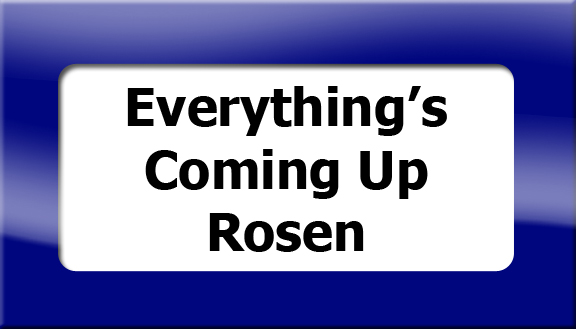The subject of peace is a recurring headline in the news of our day. Every modern president, including the current one, has tried to be the arbiter of harmony in the Middle East among antagonistic nations. And because nearly every peace accord that has ever been established has eventually been broken, peace, peacemaking and peacekeeping will always be in our news broadcasts, in the newspapers, and in our conversations. Interestingly, some of the instruments of our attempts at peace have been symbols usually associated with violence. Civil War army pistols were referred to as peacemakers and the military even named a missile ‘peacemaker.’
The role of United Nations Peacekeeping forces, as noted on their website, is to help countries torn by conflict to create the conditions for lasting peace. Comprised of civilian, police, and military personnel, peacekeepers are additionally charged with assisting in political processes, reforming judicial systems, training law enforcement and police forces, disarming and reintegrating former combatants, and supporting the return of internally displaced persons and refugees. In recent years, however, reports from around the world have implicated peacekeepers themselves with criminal behavior, abuse and oppression in strife-torn countries.
Recent public clashes between groups representing opposing racial, political and ideological views have put a spotlight on the divides that still plague American society. Some of them have had deadly consequences evidencing an increase in the propensity towards violence. One of the regrettable consequences of social media is that words and images can quickly stir up strife. This proves that harmony, if it is achieved, should never be taken for granted but must always be watchfully maintained.
In His Sermon on the Mount, Jesus raised the issue of peacemaking, and probably shocked His audience that was accustomed to social and religious sectarian conflict. Pharisees and Sadducees didn’t get along very well. Publicans were a hated group and considered traitors for collecting taxes on behalf of the Roman government. The Law of Moses demanded an eye for an eye, blood for blood and life for a life. But Jesus offered a radical new perspective on conflict: “Blessed are the peacemakers for they shall be called the sons of God” (Matthew 5:9).
This week, we observed the celebration of the life of Dr. Martin Luther King, Jr. who was a proponent of peace. Whether questioning the nation’s involvement in the Vietnam war and the quest for nuclear supremacy or pricking the public conscience to address injustice, there could be no doubt about what he believed. His preferred tactic for confronting the evils of racism was non-violent protest. Recognizing the greater power of words over weapons, he masterfully challenged America to consider her ways. Concerning peace, some of his powerful statements are enshrined in public memorials that inspire emerging generations to brotherhood and harmony: “Those who love peace must learn to organize as effectively as those who love war.” “Sooner or later all the people of the world will have to discover a way to live together in peace.” “When the power of love overcomes the love of power, the world will know peace.”
For his efforts, Dr. King was awarded the Nobel Peace Prize in 1964. He is regarded as the champion of the civil rights movement and is celebrated as one of America’s greatest citizens. His actions also fulfilled the qualifications Jesus identified in order to be considered a son of God. In a world where there is more that we have in common than in difference, it’s time for us to unite in brotherhood and harmony and make the pursuit of peace a clear objective. Only then can we expect to be called the sons of God.
Bishop Patrick L. Kelly is the pastor of Cathedral Church of God, 365 S. Dixie Hwy., Deerfield Beach, FL 33441. 954-427-0302.








